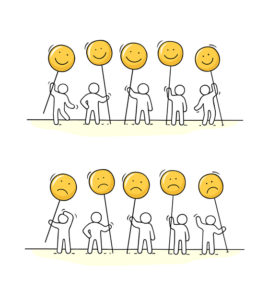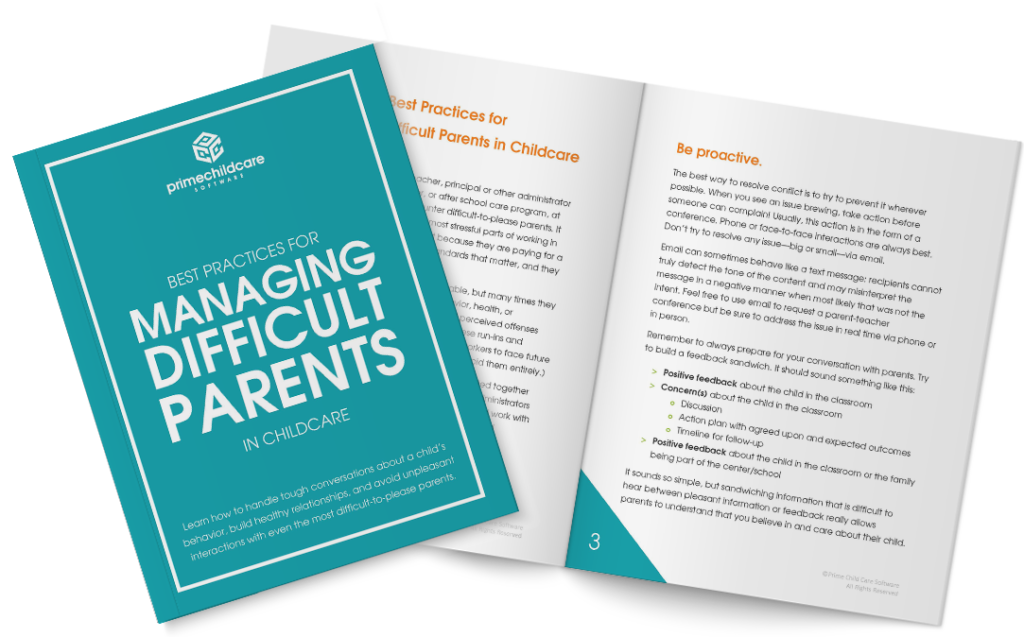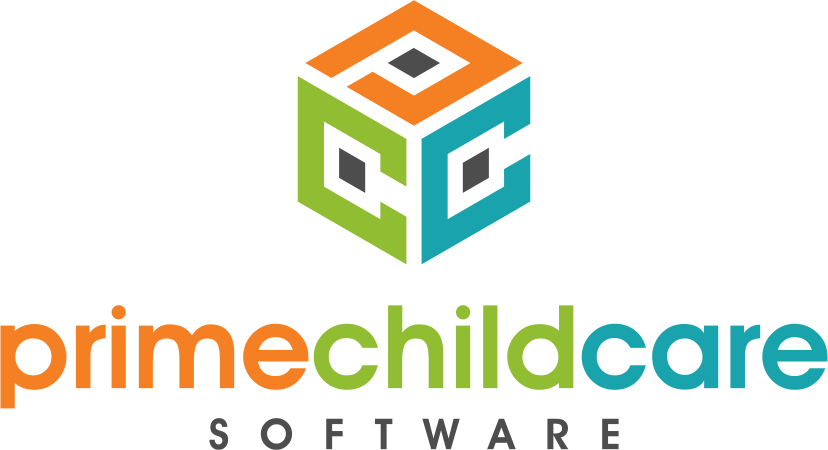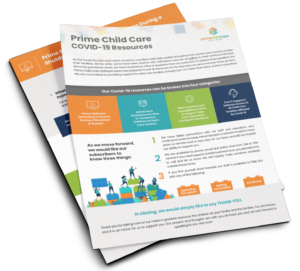Have you ever been in that work environment where everything is fine until you get to work, and then it’s all downhill?
It’s not you. It’s not even the work itself. It’s the culture. Could be the people or the environment or the management. Toxic culture in the workplace is rampant, but we all play a role in its improvement and maintenance.
If your child care center culture is struggling to retain employees, and staff member turnover is at an all-time high, it’s probably a sign of a toxic workplace culture. Don’t worry! The good news is that recognizing and admitting there is a problem is the first step. 
In a hiring climate like the one we’re in now where there’s an enormous shortage of talented childcare workers, you should never EVER ignore your team when they tell you there’s a toxic culture at your center. Letting a toxic culture persist, or being dismissive of childcare worker complaints about colleagues or the work environment will lead to employee attrition, under-performance, and inefficiency.
You may think complaints you’re getting from your employees are the result of enforcing workplace rules and holding your staff accountable. Maybe you look at your team and think that gossip, cliques, poor benefits, and other less obvious issues are the culprit. While these will all play some role, the biggest source of child care center cultural influence sits at the top of the organization — with you. Truth.
Self-Reflection & Self-Awareness Is Key
In Meghan E. Butler’s article “How to fix your toxic culture,” Shahnaz Broucek, a professor of coaching and mentoring for MBA students at the University of Michigan, notes that “leadership sets the tone of the workplace culture and acceptable behavior patterns.” Leaders set the tone. Whether the leader of your childcare business is the administrator, team leader, or a mentor, those in leadership roles carry the burden of ensuring a positive, healthy culture for everyone else.
Now that we know who’s leading the charge around culture, what can you do to fix it?!
Before you embark on the hefty task of turning around a toxic work environment, take some time to reflect. As a child care center leader, you have to understand your role in the cultural state of the business. Ask yourself:
- Are you listening to employees?
- Are you making yourself available?
- Do you have your finger on the pulse of the center?
- Are you taking action when someone brings a problem or complaint to you?
- Are you communicating regularly?

- Do you have a true open door policy?
- Do you put your money where your mouth is and live up to promises made?
All of these questions (and more) are part of understanding your role in the cultural environment. As a center administrator, you must be available to your employees. When they are struggling at the classroom or supportive level, they need someone that is approachable. Maybe it’s a teacher/parent issue. Perhaps it is a teacher/teacher issue. It could even be something outside of the school impacting a teacher at school who then acts out or takes it out on other co-workers. You are the comment box. And as such, you have to be able to take feedback or concerns and turn them into something actionable. If someone is brave enough to bring a problem to you, you have to be strong enough to try to help them resolve the issue. If you’re not doing that, this would be a good place to start.
4 Tips For Improving Your Childcare Center
Once you have carefully reflected on your own behaviors and surveyed the staff, create an action plan. Identify ways that you can improve the current situation. This may include making some tough decisions.
1. Communicate. Communicate. Communicate.
Social cliques and gossip can kill even the best culture faster than anything. The best way to minimize gossip is to communicate often. Gossip grows in environments absent of facts. Thus, communication is key.
Your plan must include opportunities and avenues to communicate often with your entire staff and with your students’ families. This ensures that everyone is working from the same set of facts and knows what is going on. Anything less is a breeding ground for the rumor mill.
Strong communication also allows your employees to do their best work. It allows them to understand your expectations and work more efficiently. A few suggestions for modes of communication include:
- Regular staff or team meetings (at least weekly, but preferably daily)
- Weekly or monthly newsletters (this is great for staff and families alike)
- Short email memos for unexpected changes or updates
2. Stay Engaged And Praise Good Work.
Too many times leadership is heads down on the administrative obligations child care centers face, and they miss the really good stuff going on around them. Teachers and staff want to do good work. They also want to be recognized for such. Make a plan to be visible to staff members on a regular basis, and when you catch someone doing something awesome, recognize them privately with a handwritten note and publicly in a staff meeting or creative public bulletin board.
When you are engaged, you will be able to see where the cultural pitfalls are, sometimes before they become a problem. You will also see all of the amazing things your center is doing for kids. Seeing such and recognizing such build intrinsic motivation within your staff. We all want to grow and improve our skills. Being recognized for such is a huge reward but can’t happen if you are stuck writing checks in your office to vendors.
3. Foster A Healthy Work Environment.
Genuine positivity is important. When you kick off the year, discuss the rules of engagement with each other. Respect and courtesy are a must, and sometimes that needs to be spelled out in terms of how to go about that even during disagreements. Be sure to also create a formal anti-bullying policy for your staff. Aggressive or bullying types of behavior cannot and should not be tolerated.
When you are engaged, you will be able to see where the cultural pitfalls are, sometimes before they become a problem. You will also see all of the amazing things your center is doing for kids. Seeing such and recognizing such build intrinsic motivation within your staff. We all want to grow and improve our skills. Being recognized for such is a huge reward but can’t happen if you are stuck writing checks in your office to vendors.
4. Don’t Let One Bad Apple Spoil The Bunch.
Not all of your plan will be easy to execute, but it will all be necessary. If you have a staff member(s) who is toxic to your future success, you may need let them go. Ideally, you want to retain as many employees as possible; after all, you have made an investment in them. However, you cannot allow one bad apple to spoil the bunch. Cut your losses and move forward when necessary.
Execute Your Plan Consistently
Put your money where your mouth is. Share the plan with your staff. It will keep you accountable to them, and it will guide them in terms of their own behaviors and interactions with other staff members and center families. If you say you will do something, then follow through. Losing your employees’ trust is a surefire way to tank your cultural rebuild. Take it one day at a time and make small changes. You will look back in 2, 3, 4 months and see that you are really making big strides, though it may not feel that way on a daily basis.
Shifting the culture in your workplace is a challenging. Set small goals and reflect and adjust often. Your culture didn’t slide into a toxic place overnight, nor will you repair and rebuild it overnight either. However, with patience, dedication, and a plan, you can turn your culture into the winning one you know it can be!
Free White Paper:
Best Practices For Managing Difficult Parents
Learn how to handle tough conversations about a child’s
behavior, build healthy relationships, and avoid unpleasant
interactions with even the most difficult-to-please parents.

Recent Articles from Prime:

7 Exciting Classroom Ideas for April
April showers keep the grass green and fresh. Similarly, these classroom ideas will keep learning fun for your students. … Read More

10 Fun March Classroom Ideas
It’s spring! If you’re wondering how to keep the attention of young learners, these 10 classroom ideas should help. … Read More

6 Ways to Estimate Your Cash Flow During Fall and Winter
Cash flow keeps your daycare business healthy and enables it to accelerate during busy months and withstand lean ones. There are different ways to estimate and measure cash flow. Each has its merits and weaknesses, depending on your operational goals. … Read More

Meeting Quality Standards With Optimum Classroom Ratios
Parents prize quality when looking for a childcare program. Get the right info about optimum classroom ratios to meet quality standards. … Read More












